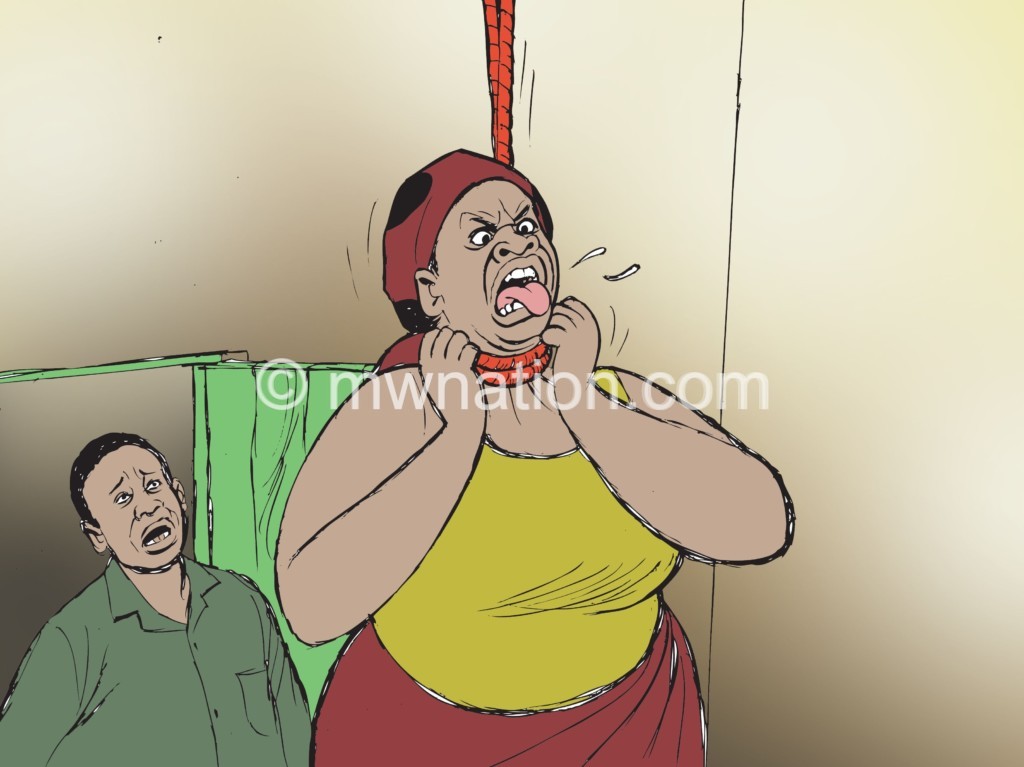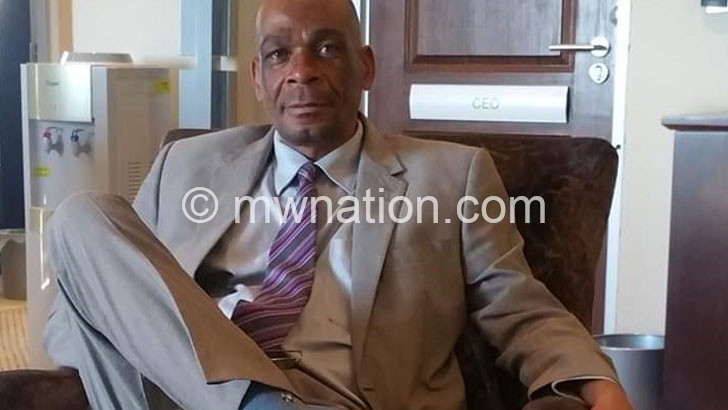Covid worsens suicide—study
A recent study has revealed that Covid-19 induced economic meltdown has increased suicide cases among men in Malawi.
The study by Gift Treighcy Banda, Natasha Banda, Anthony Chadza and Chisomo Mthunzi, published in PanAfrican Medical Journal this year, found that the last year’s lockdown to prevent the spread of the pandemic slowed down economic activities resulting in loss of jobs and businesses jobs in the country.

Employers Consultative Association of Malawi (Ecam) also warned that companies would lay off staff as they continue to struggle with the pandemic.
Ecam executive director George Khaki was quoted in media as saying most companies are resorting to minimising production costs which may lead to job losses.
Reads the study: “During the lockdown period to mitigate the impact of the Covid-19 pandemic between April and September 2020, Malawi saw a rise in suicide cases, most of which were due to the resulting financial hardships.”

The study, entitled Suicide Epidemic in Malawi: What Can We Do? established that the pandemic also worsened poverty and a situation where people live from hand to mouth.
The researchers explain: “Perpetual poverty among Malawians threatens the very fabric of existence. It is estimated that about 50 percent of the Malawi population lives in poverty, with 20 percent living in extreme poverty.
“Suicide from impulsive life stresses is often connected with social and cultural factors such as debt and romantic relationship breakdown. Extreme poverty destabilises lives, crushes self-esteem and creates despair and this can lead to self-harm. Despair and self-harm can evolve into suicide.
“In Malawi, the socio-demographic factors mostly associated with suicide are being male, aged between 21 and 30, low education and living in rural areas.”
The researchers also attribute the rise in suicide cases to lack of interventions such as psychosocial therapy, poor coping skills and cultural upbringing.

They say: “Men rarely express their stresses or emotions despite there being proverbs such as ‘mutu umodzi susenza denga [one person cannot carry a heavy burden alone].
“The Malawian culture doesn´t allow men to be vulnerable and express emotions during difficult times unlike women; similarly, to most African cultures.
“Men are expected to be stoic breadwinners and protectors, showing no sign of emotional weakness such as crying. This is said to play a major role in suicide.”
They argue that there is also a strong link between mental illnesses—especially severe depression and substance use disorder—and suicide attempts.
The study findings corroborate those of Charles Mwale and Chitsanzo Mafuta who studied the Annual Prevalence of Suicide in Malawi in 2019.
They found that age, social status, family conflicts, gender, psychiatric conditions and remaining unmarried are risk factors which may lead to committing suicide.
This study—whose findings were presented at Saint John of God’s Annual Research Day in Dublin, England on November 12 2019 —found that 80 percent of people committing suicide were male, particularly youths aged 15 and 29; among rural and illiterate people.
Mwale, in an interview on Friday, confirmed suicide is on the rise and moved towards youths, affluent and influential people.
A mental health expert, Dr. Precious Makiyi, said in a response to a questionnaire there are several contributing factors that lead to suicide.
He said: “For instance, culturally, manhood is viewed as being strong and resilient and that a man ought not to cry or complain when they are psychologically down.
“This contributes to men not seeking help—they suffer in silence. More so, economically, we expect a man being a breadwinner to provide everything for the family.
“Depression is more common in women than in men so is self-harm and suicide attempt. However, completed suicide is common among men because they use aggressive methods to take their lives unlike women who prefer less aggressive means.
“For this, they are more likely to be rescued and to survive unlike men. So the truth remains that women attempt suicide more than men but they survive.”
The mental health expert said speaking out, common in women, is helpful as it is a way of releasing one’s negative emotions.
Makiyi warned that publishing suicide stories has the potential to create more suicide cases through what he described as “copycat suicide” or “suicide contagion”.
He said: “So, members of the media should trade carefully when sharing news about suicide. The content of a suicide media report should give hope and offer a solution to those who are likely to be influenced by suicide.”
On the 21 to 30 age group, Makiyi said this is a risky age as it is transitioning into adulthood.
He said this group faces career which contribute to depression.
On his part, Catholic University sociologist Charles Chilimampunga said many men commit suicide because they do not share their problems with others.
He said: “Men normally bottle up issues which explode into suicide, violence or mental health problems such as depression.
“Besides, men are under pressure to meet societal expectations as breadwinners. When they fail to meet the expectations they feel inadequate and sometimes they are ridiculed by community members. In a highly patriarchal society like Malawi, men don’t ask for help.
On the age group of 21 to 30 mostly committing suicide, he said many of them are under pressure to secure a job, marriage or gain recognition in society which creates depression leading to suicide.
Kamuzu University of Health Sciences mental health associate professor Chiwoza Bandawe said less women commit suicide because they have resilience, inner and emotional strength whereas men tend to rely more on physical prowess and strength.
He said: “Men don’t open up because they are told mwamuna salira [men don’t cry]…men don’t focus on emotions or open up because they are sensitive on how other would view and interpret their action. We pretend all is fine.”






One Comment